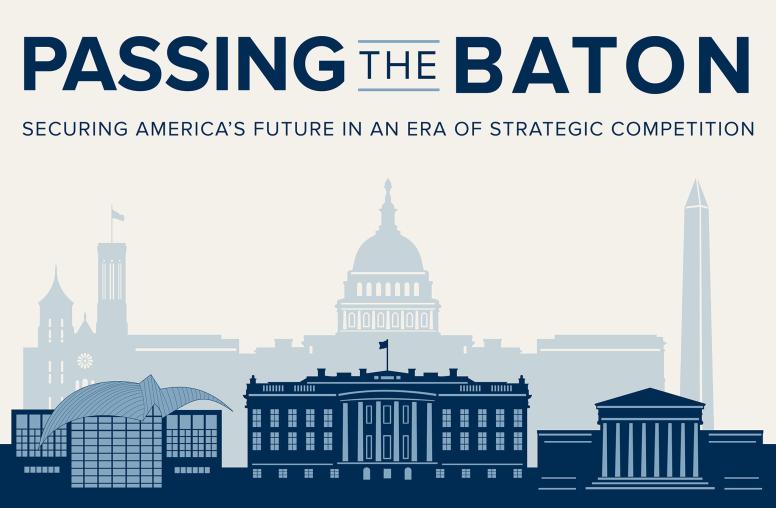Avoiding Violence in Kirkuk Requires Settling Property Disputes Quickly
Institute Newsbyte applies lessons learned from administrative property claims processes used in Bosnia and Kosovo to post-war Iraq.
WASHINGTON—As looting and disorder in Iraq abate, there remains a risk of violent conflict over real property claims, especially in Kirkuk and other areas the Saddam Hussein regime tried to Arabize. For more than 35 years, people of all ethnic and religious groups in Iraq have been uprooted and forced to move in order to satisfy Ba'athist political objectives. Hundreds of thousands of Kurds and Turkmen are now trying to return to their homes, many of which are occupied by Arabs. Iraq is bound by a number of international instruments that recognize the right of return of displaced people and refugees.
The U.S. Institute of Peace on April 23, 2003 held a meeting of expatriate Iraqis of Kurdish, Turkmen, and Arab origin as well as U.S. Government officials, nongovernmental organizations, and academics. The group sought to understand the situation on the ground, especially in Kirkuk and Mosul, to absorb lessons learned from administrative property claims processes used in Bosnia and Kosovo as well as elsewhere, and to consider whether such processes are needed in Iraq in order to avoid violence.
The views summarized below reflect the discussion at the meeting; they do not represent formal positions taken by the Institute, which does not advocate specific policies.
On the Ground in Mosul and Kirkuk: Tension and Restraint
Since the end of the Iraq war, there has been no forced displacement of large numbers of people in either Mosul or Kirkuk, but the situation remains tense. There have been individual acts of killing, violence, and intimidation aimed at regaining claimed real property, changes to Arabic street and place names, and some delivery of eviction notices, but the Kurdish peshmerga and other militias have not tried to correct en masse the substantial injustices of the past. It is important that all ethnic groups show restraint and avoid even the appearance of trying to establish facts on the ground that will condition Kirkuk's future.
It is also important that a process be set up quickly to resolve real property claims and that the resulting decisions be implemented in a way that is transparent and fair to all ethnic groups. Even if resolution is not immediate, the prospect of justice, which may include compensation, will have a stabilizing effect.
The real property claims situation is likely to be exceedingly complicated. Kurds and Turkmen were forced out of Kirkuk, sometimes with and sometimes without compensation. The Saddam Hussein regime often deprived them of both their "Black Certificates" (deeds)—which did not even exist for some ancient property rights—and their identity documents, making it difficult for them to establish their ownership rights. Many property records were destroyed in the recent war or in the uprisings following the Gulf War in 1991. It will be necessary to rely on indirect methods—personal testimony by third parties, rent receipts, driver's licenses—to establish ownership. Some of the buildings Kurds and Turkmen owned have been destroyed, but in many other cases Arabs from other parts of Iraq have been moved into their homes. Some Arabs were willing (and even paid) participants in this Arabization process, while others were themselves victims of forced displacement. In addition, some Arabs were moved to government-owned land, thus changing the ethnic balance without needing to displace anyone, and some Arabs have been resident in Kirkuk since well before the time of Saddam Hussein.
Lessons Learned from Bosnia and Kosovo
Circumstances in Iraq are very different from those in Bosnia and Kosovo, and different from other situations in which mass claims processes have been utilized. In fact, all previous processes have been individually designed for particular circumstances—there has been no general formula. There are, nevertheless, lessons learned that could be useful in post-war Iraq.
A property claims commission does not operate in a vacuum and it will not itself solve social and political problems. The overall societal and political objectives need to be clear: does Iraq aim to restore the ethnic distribution to what existed at some prior date, or does it want to correct injustices to those who were forced from their homes? Does it seek to punish those who collaborated with the Hussein regime? Does it seek to completely reverse the consequences of the regime's crimes?
It will be necessary to establish a cut-off date for claims to be handled in a property commission. This would not preclude the handling of prior claims by the justice system. The appropriate date in the case of Iraq is not obvious. Some proposed 1958—before the monarchy was overthrown—and others 1968—before the Ba'ath party came to power. Others would prefer a more recent date, so as to give priority to those who have not had an opportunity to resettle permanently, many of whom have been living in deplorable conditions for years.
A property commission should not be created without the provisions needed to ensure implementation of its decisions. For example, implementing provisions should include an obligation on the part of the local authorities (or someone else) to conduct the needed evictions, and provide the resources needed to implement the decisions of a commission. A commission must be well funded and well managed by people present in the country. Those people who will be newly displaced by property commission decisions need to be provided for—it will serve no good purpose to have them cast out with nowhere to go, and it will increase their resistance to the process. Adequate government-owned acreage is available to resettle these people, but its location may present both practical and political problems. Existing property records need to be protected. If priorities are to be established, they must be based on entirely objective criteria set forth in the enabling document—it is impossible to administer priorities fairly if they are based on humanitarian or other subjective considerations, as such considerations open the door to political and other pressures. "First claims processed first" may be a good rule to ensure integrity of the process, despite the unfairness it may cause in some individual cases.
While there is clearly a need to move quickly on property claims, no mass claims procedure has been known to meet a deadline set for it. There are, however, ways of accelerating the process. One way may be to regard the commission as administrative rather than arbitral (so as to avoid international arbitration requirements). Other ways include employing relaxed standards of proof and allowing the use of sampling techniques. International assistance is available from several experienced international organizations, such as the International Organization for Migration, the Permanent Court of Arbitration in The Hague, and the Organization for Security and Cooperation in Europe. The United Nations Habitat effort in Kosovo was not successful.
The administrative procedure is only part of the process that a property commission needs to manage. To be fair to all potential claimants, it must also run a major outreach effort so that information on the process is conveyed to Iraqis worldwide. Within Iraq, both fixed offices and mobile teams should be created to process the registration of claims.
A Property Commission Is Needed, but How It Can Be Set Up Is Not Yet Clear
While there is an existing justice system that could in principle handle property claims disputes, the participants thought it could not do so in a way that would be acceptable to all concerned. Many of the currently serving judges were involved with the Arabization process—the better judges are retired and would need to be brought back into the system, which in any event needs a thorough overhaul.
Regional property commissions should be formed quickly, where required, with multiethnic and international participation. In Kirkuk, for example, a commission could have one Kurd, one Turkman, one Arab, one Assyrian, and one international (as the chair). These should all be legally trained people, and the international should be someone with experience concerning property claims in other contexts.
It is not yet apparent where the authority to set up property commissions would come from. The Fourth Geneva Convention does not explicitly authorize adjudication of property disputes by the occupying powers, but the coaltion might do so in order to ensure public security. The question of applicable law is a critical one for a property commission: it must work within a well-defined legal context. Depending on how that question is settled, it may also be necessary to nullify some legal provisions of the Hussein regime. How this might be done is not yet clear.
A new UN Security Council resolution on Iraq could explicitly authorize an administrative mechanism to settle real property disputes among Iraqis and enable the promulgation of the required legal measures. Otherwise the permanence of the adjudication may be in doubt, leading to continuing sources of instability.
Recommendations
- The coalition should clarify applicable law in Iraq and the procedures for future changes in laws and administrative regulations as well as overall political objectives.
- The Office of Reconstruction and Humanitarian Assistance should urgently consider establishment of a Kirkuk province property commission with multiethnic and international participation.
- The international community should provide expertise and administrative assistance.
- Iraqis should seek to channel their real property disputes into the administrative channels provided, renouncing the use of violence.
This Newsbyte was written by Daniel Serwer, director of peace operations, U.S. Institute of Peace. The views summarized above reflect the discussion at the meeting; they do not represent formal positions taken by the Institute, which does not advocate specific policies.



